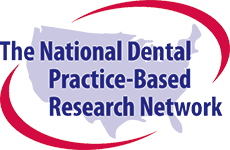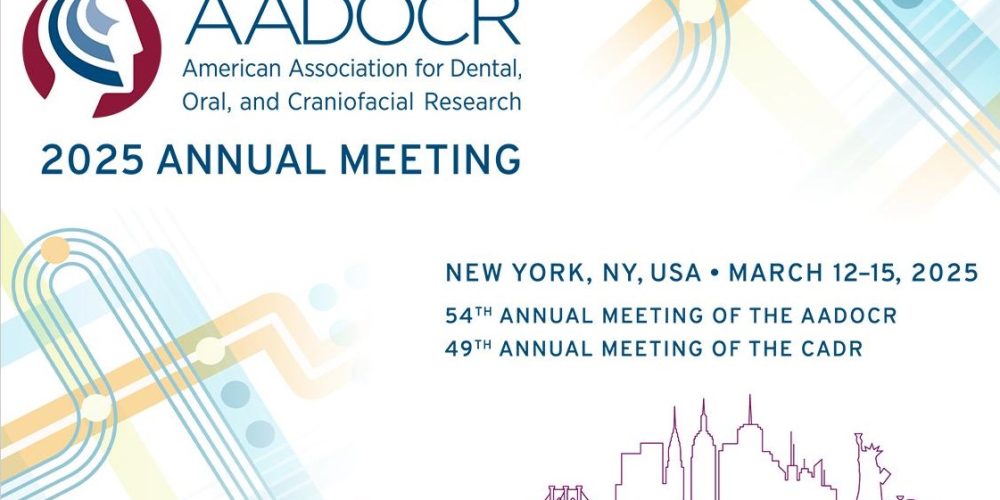Don’t miss the opportunity to hear the latest results from our studies at the AADOCR Annual Meeting. This year the meeting will be held in New York from March 12-15, 2025. The Network will present some posters and will participate in three Symposiums.
The network’s 2022 Year in Review

2022 was another productive year for our network! Recall that our over-arching goal is to improve the nation’s oral health by improving the knowledge base for everyday clinical decision-making and moving the latest evidence into routine care. Much was accomplished! For example,
- study results were published in 17 peer-reviewed scientific publications in 2022, and another 5 were accepted for publication.
- data collection for 11 studies since 2020 has now been completed. Two studies are currently in data collection (Post-operative Pain Study and Dental Implant Registry), and at least another two are planned for 2023.
- network practitioners and investigators provided 10 peer-reviewed national research presentations, and 47 non-peer-reviewed presentations and publications. Our mantra continues to be: disseminate, disseminate, disseminate!
With the launch of several new studies and planned presentations and publications from the network’s current studies, 2023 promises to be an exciting year. We also look forward to having face-to-face practitioner meetings in 2024.
Thank you for making it happen!
Here are some key findings from the network’s 2022 publications:
- a network simulation study, “Comparison of aerosol mitigation strategies and aerosol persistence in dental environments” found that conical and ISOVAC HVE were superior to standard-tip evacuation for aerosol-generating procedures. When aerosols were detected in the environment, they were rapidly dispersed within minutes of completing the aerosol-generating procedure. Few aerosols were detected in dental clinics, regardless of configuration, when conical and ISOVAC HVE were used. You may want to compare the procedures used in your office to those used in this study.
- a network questionnaire study “Deep caries removal strategies: finds from the National Dental Practice-Based Research Network” found that network dentists use selective caries removal strategies when managing deep carious lesions more often than in previous US practice-based studies. Nonetheless, significant discordance with the International Caries Classification guidelines was evident. After you read this article, you may want to ponder how you treat deep occlusal caries.
- a network study of dental health care personnel “Assessment of dental health care personnel protocol deviations and self-contamination during personal protective equipment donning and doffing” found that self-contamination was common during both donning and doffing personal protective equipment. After you read this article, you may want to review with your staff the PPE procedures used in your office.
- a major study of electronic dental records from network practices “Root canal treatment survival analysis in National Dental PBRN Practices” found that the overall median survival time for a root-canal-treated (RCT) tooth was 11.1 years; 26% of RCT teeth survived beyond 20 years. Having a crown placed following a RCT was associated with a 5.3 year longer median survival time. Teeth that received a filling soon after the RCT but before the crown was placed, had a median survival time of 20.1 years compared to RCT teeth with only a crown (11.4 years), only a filling (11.2 years), or no filling and no crown (6.5 years). You may want to compare results from your practice to those from this study.
- an overview of the history and productivity of the network since its inception “Structure, function, and productivity from the National Dental Practice-Based Research Network” revealed that the 58 studies completed by the network (you!) have led to 193 peer-reviewed scientific publications in 62 different journals, with a greater-than-average impact in their fields. You have much to be proud of in your role to improve everyday practice.
- an article from the Cracked Tooth Registry Study “Onset and resolution of pain among treated and untreated posterior teeth with a visible crack: three-year findings from the national dental practice-based research network” found that treatment resolved a preponderance of pain associated with a cracked tooth. Pain was also resolved for most untreated cracked teeth, especially biting pain, and to a lesser degree spontaneous and cold pain, although not to the same degree as with the treated cracked teeth. This study led to many publications, a recurring theme of which is that treatment is effective, but that conservative management seems warranted. You may want to ponder how you treat cracked teeth in your practice.
- articles are gradually being published from the network’s TMD study (as you may have been wondering if you participated in this study!) This first article “Management of painful temporomandibular disorders: methods and overview of The National Dental Practice-Based Research Network prospective cohort study” detailed the study methods and documented how US practitioners typically manage patients with TMD, often using conservative management.
Current and upcoming studies in 2023
Post-Operative Pain Study – POPS
Participate in this study investigating management of pain up to 3 weeks after dental procedures. Aided by an mHealth text messaging platform, practitioners monitor pain experiences of their patients undergoing potentially painful dental procedures. Do not miss the chance to better communicate with your patients and contribute to the science of dental pain. Join now! Read more
Dental Implant Registry
Consider joining the dentists who are creating the first National implant registry funded by NIDCR. You will enroll 10 to 15 patients with dental implants, at the time of prosthesis placement, and conduct one clinical examination every year for 3 years to investigate the success of implant therapy. Read more
Free Samples for Health – FreSH Study
Inviting all practitioners from the Network’s Midwest and Northeast Regions (only) to participate in this trial to help their patients quit smoking. Dentists will enroll patients who smoke, and then deliver a brief intervention called Ask-Advise-Refer. Patients will receive a free bag containing an electric toothbrush or Nicotine Replacement Therapy (NRT) samples. If you are a network member from the Midwest and Northeast regions, register for the webinar on Jan 27th to learn more about the study. Read more
Mental Health Screenings and Referrals in Dental Practice – MSDP
Practitioners from the Network’s South Central Region (only) will participate in this study to investigate the feasibility of integrating mental health screenings and treatment referrals into dental practice workflows. If you are a member from the South Central Region and want to participate, contact us.
If you are interested in participating, contact us!



